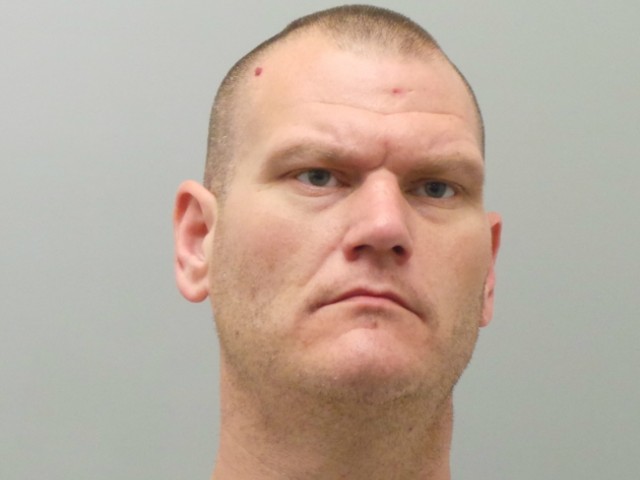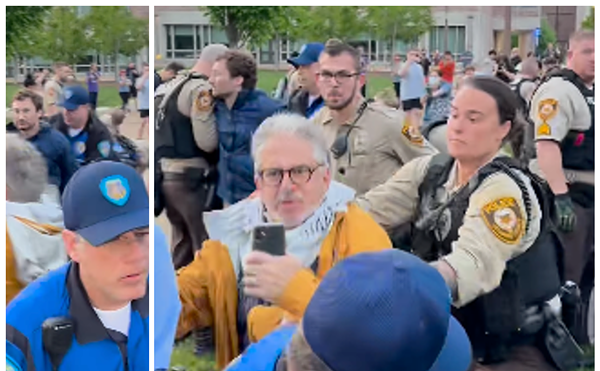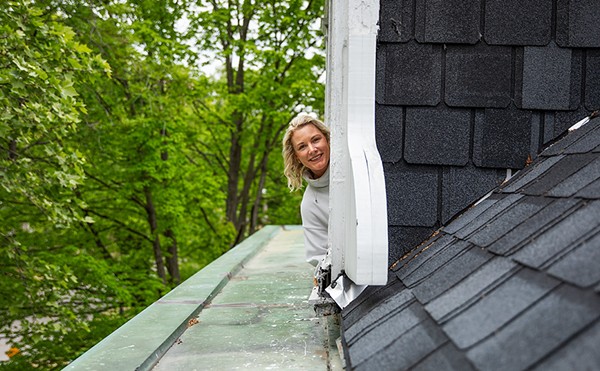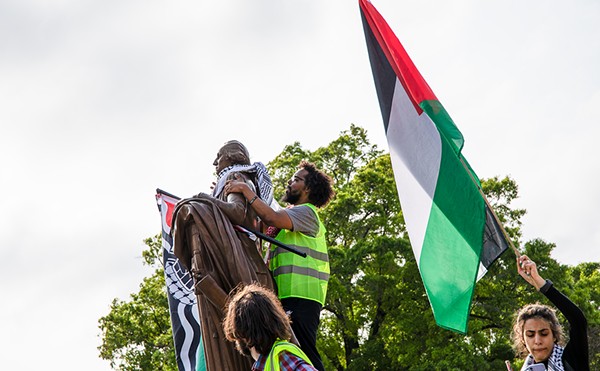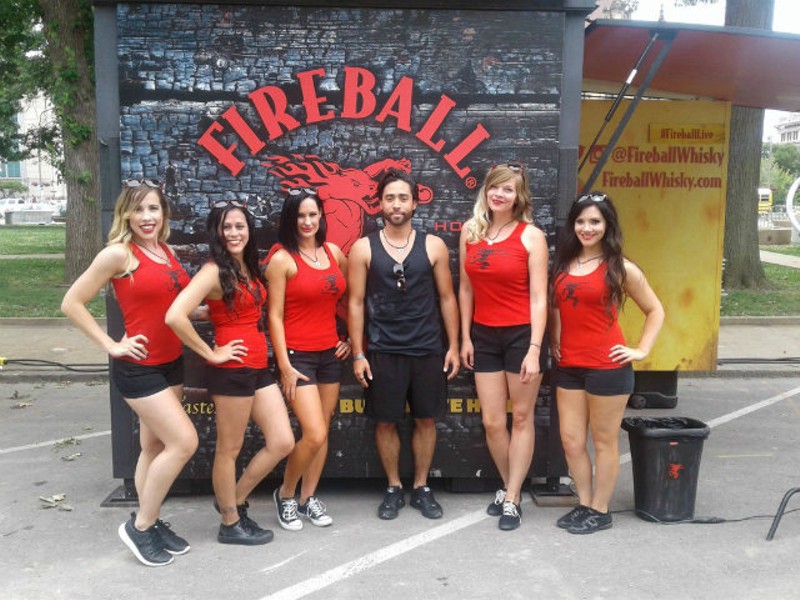
COURTESY OF MORGAN JOHNSON
Morgan Johnson, center, was a promoter for the Fireball kiosk at PrideSTL.
As a promoter working at the Fireball Cinnamon Whiskey Kiosk between Tucker and N. 13th Street, Morgan Johnson was having a blast handing out memorabilia and beads last Saturday, June 24. That is, until around 6 p.m., when a woman in her thirties came up to him and asked a strange question: "Are you gay?" Assuming she had a strange sense of humor, Johnson truthfully replied no.
That’s when things started to escalate.
“This is what really threw me off, because it was the last thing I was expected at an event like this," Johnson recalls, "but she went, ‘Why are you here with all these faggots?’ You know, 'A bunch of faggots that are going to hell, and since you’re here, you’re going with them.'”
Johnson says he responded, "Get your homophobic ass out of here." That's when the woman snapped, getting in his face. She called him a “spic” (though Johnson is half-black and half-white, he suggested that he may look Hispanic to others). Then she announced she was going home to get her gun. Johnson’s boss, who witnessed the event, got security to escort the woman off the premises.
“I 150 percent don’t regret what I said. Anything racist or homophobic or anything like that strikes a cord in me,” Johnson says. “I saw it as extremely necessary, and if I was in the same situation I would do it again. I have too many friends that are gay and bi. I think it would be a disservice to let that go by without me saying something.”
Landon Brownfield, secretary of the board of Pride St Louis, which runs the event, noted that no formal incidents of hate speech had been reported. But Brownfield said it can be difficult to monitor situations like the ones Johnson describes. Though hate speech is prohibited as a form of official protest at the event, it’s much more difficult to monitor comments from individual attendees.
While Johnson suggested that this kind of hate speech appeared to be “a rare occasion” at the festival in his experience, Brownfield says that homophobia and transphobia are more common than many people may realize.
“A lot of people kind of live in a bubble, especially when you surround yourself with the same kind of people,” Brownfield says. “We hear a lot of people, especially youth in rural areas, say, ‘Pride is my only chance to be myself.’ It’s a lot more prevalent, and not many people realize.”
In fact, LGBT hate crimes are on the rise in Missouri. There has been an increase in phone calls and emails reporting hate crimes to PROMO, Missouri’s statewide organization advocating for LGBT equality, and in the ten-day period since Donald Trump was elected, eleven hate incidents occurred in Missouri alone, according to the Southern Poverty Law Center.
“There are a lot of relatable incidents that have happened in Missouri, particularly in the last year. We call it ‘the Trump effect,’” says Katie Stuckenschneider, communications director for PROMO. “Right after all of that happened there was quite an influx. I could talk about this for years because it’s something the press has not picked up on that should be talked about. It’s something that needs to change.”
Last September in Camdenton, Missouri, for example, a man was arrested for brutally murdering his young bisexual neighbor and the woman's mother and then setting their home on fire. However, since the case went to trial this spring, “open dialogues have happened between the LGBT community and the law enforcement there,” Stuckenschneider says.
There have also been several incidents in St. Louis of people yelling “Trump” and “dyke” to passing LGBT people. Some of these interactions have even occurred in south city, or as Stuckenschneider puts it, “our gay mecca, our safe space.” In response to the rising number of incidents, St. Louis has launched a Safe Place initiative, which will encourage LGBT residents to report crime and foster a trusting relationship between the community and the police department.
“It certainly does hit closer to home,” Brownfield says. “It can get kind of tiresome to hear that all the time, but it kind of makes me more resolved to continue doing what I'm doing, because it demonstrates that it’s more necessary than it ever has been. We keep on fighting because these kinds of things keep happening.”
Though the prominence of anti-LGBT hate incidents may be disheartening, Brownfield is encouraged by the public response to this intolerance. While standing up to people who use this kind of rhetoric may make some uncomfortable, Brownfield encourages doing so.
“Even if it is difficult, I think it's important to remember that these are people's lives we’re talking about — that issues of homophobia and transphobia directly affect people, their friends, and their family members,” Brownfield says. “It’s important to show them that they’re not just accepted but loved and cared for, and a little bit of awkwardness may be worth that.”

